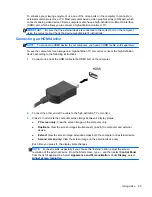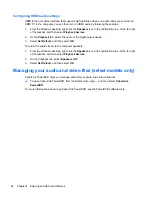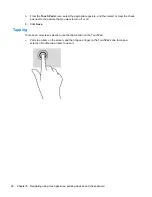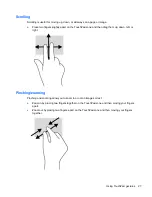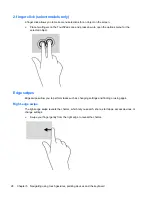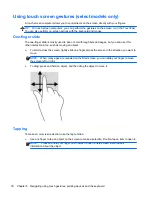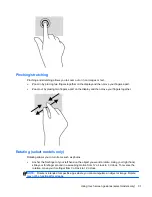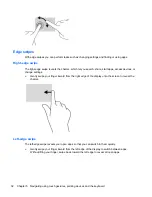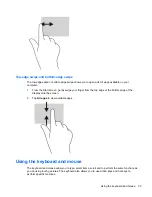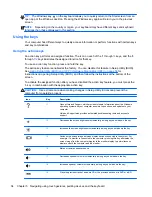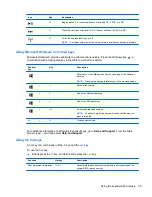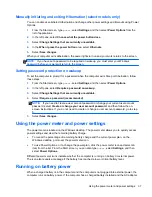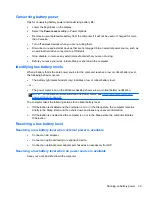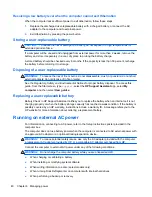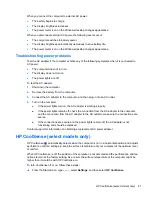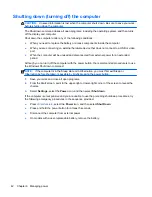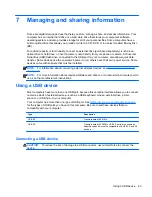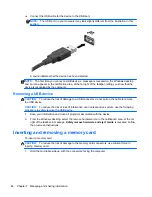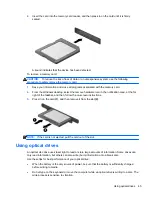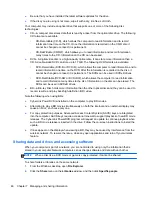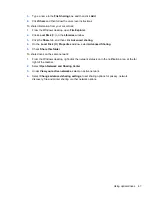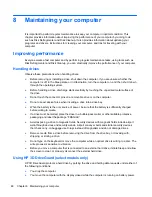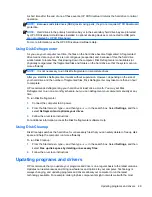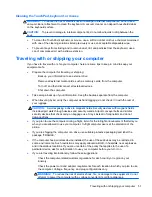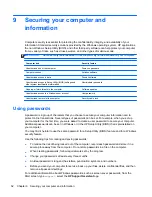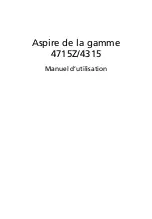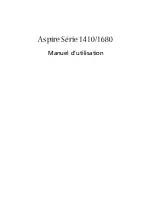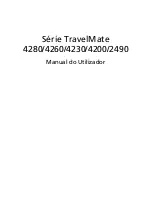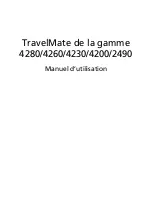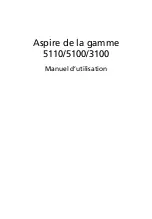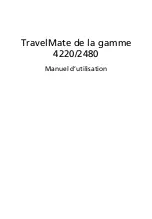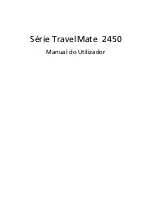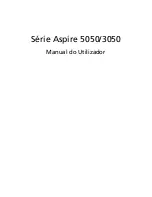
Manually initiating and exiting Hibernation (select models only)
You can enable user-initiated Hibernation and change other power settings and timeouts using Power
Options.
1.
From the Start screen, type
power
, select
Settings
, and then select
Power Options
from the
list of applications.
2.
In the left pane, select
Choose what the power button does
.
3.
Select
Change Settings that are currently unavailable
.
4.
In the
When I press the power button
area, select
Hibernate
.
5.
Select
Save changes
.
When your computer exits Hibernation, the power lights turn on and your work returns to the screen.
NOTE:
If you have set a password to be required on wakeup, you must enter your Windows
password before your work will return to the screen.
Setting password protection on wakeup
To set the computer to prompt for a password when the computer exits Sleep or Hibernation, follow
these steps:
1.
From the Start screen, type
power
, select
Settings
, and then select
Power Options
.
2.
In the left pane, select
Require a password on wakeup
.
3.
Select
Change Settings that are currently unavailable
.
4.
Select
Require a password (recommended)
.
NOTE:
If you need to create a user account password or change your current user account
password, select
Create or change your user account password
, and then follow the on-
screen instructions. If you do not need to create or change a user account password, go to step
5.
5.
Select
Save changes
.
Using the power meter and power settings
The power meter is located on the Windows desktop. The power meter allows you to quickly access
power settings and view the remaining battery charge.
●
To reveal the percentage of remaining battery charge and the current power plan, on the
Windows desktop, point over the power meter icon.
●
To use Power Options, or to change the power plan, click the power meter icon and select an
item from the list. From the Start screen, you can also type
power
, select
Settings
, and then
select
Power Options
.
Different power meter icons indicate whether the computer is running on battery or external power.
The icon also reveals a message if the battery has reached a low or critical battery level.
Running on battery power
When a charged battery is in the computer and the computer is not plugged into external power, the
computer runs on battery power. If the computer has a charged battery installed and the AC adapter
Using the power meter and power settings
37

